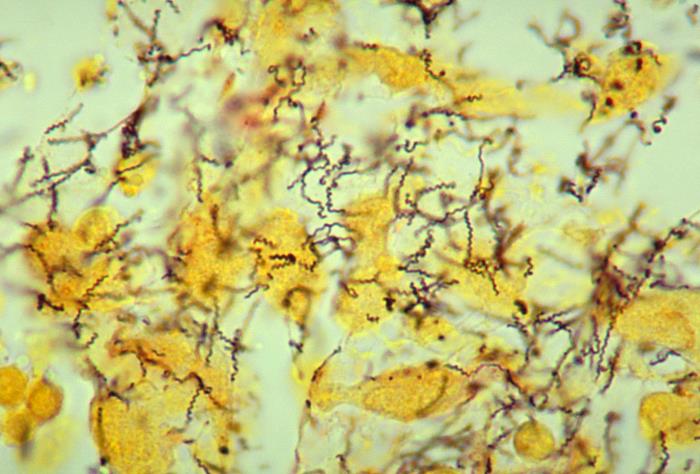Services / Clinical Services & Disease Prevention / Syphilis
Syphilis
Information on syphilis – a curable sexually transmitted disease.

What is syphilis?
Syphilis is a sexually transmitted infection (STI) that can cause serious health problems without treatment. Infection develops in stages (primary, secondary, latent, and tertiary). Each stage can have different signs and symptoms. You might think syphilis is a thing of the past, but it’s not. Hamilton County is currently seeing higher than usual rates of transmission in our community.
How is syphilis spread?
You can get syphilis by direct contact with a syphilis sore during vaginal, anal, or oral sex.
Syphilis can spread from a mother with syphilis to her unborn baby.
You cannot get syphilis through casual contact with objects, such as:
- toilet seats
- doorknobs
- swimming pools
- hot tubs
- bathtubs
- sharing clothing, or eating utensils

Have syphilis questions or looking to schedule a screening? We can help.
Let us know you have a question or would like help with testing/treatment and someone from our team will reach out!
Reducing Your Risk of Syphilis
Am I at risk for syphilis?
Sexually active people can get syphilis through vaginal, anal, or oral sex without a condom with a partner who has syphilis. If you are sexually active, have an honest and open talk with your healthcare provider. Ask them if you should get tested for syphilis or other STDs.
You should get tested regularly for syphilis if you are sexually active and
- are a gay or bisexual man;
- have HIV;
- are taking pre-exposure prophylaxis (PrEP) for HIV prevention; or
- have partner(s) who have tested positive for syphilis.
- engage in or are a consumer of sex work.
All pregnant people should receive syphilis testing at their first prenatal visit. Some pregnant people need to receive syphilis testing again during the third trimester at 28 weeks and at delivery.

How can I reduce my risk of getting syphilis?
The only way to completely avoid STDs is to not have vaginal, anal, or oral sex.
If you are sexually active, you can do the following things to lower your chances of getting syphilis:
- Being in a long-term mutually monogamous relationship with a partner who has been tested and does not have syphilis.
- Using condoms the right way every time you have sex.
Condoms prevent the spread of syphilis by preventing contact with a sore. Sometimes sores occur in areas not covered by a condom. Contact with these sores can still transmit syphilis.
I’m pregnant. How does syphilis affect my baby?
If you are pregnant and have syphilis, you can give the infection to your unborn baby. Having syphilis can lead to a low-birth-weight-baby. It can make it more likely you will deliver your baby too early or stillborn (a baby born dead). To protect your baby, you should receive syphilis testing at least once during your pregnancy. Receive treatment right away if you test positive.
At birth, a baby with a syphilis infection may not have signs or symptoms of disease. However, if the baby does not receive treatment right away, the baby may develop serious problems within a few weeks. These babies can have health problems, such as cataracts, deafness, or seizures, and can die.
Signs & Symptoms
There are four stages of syphilis (primary, secondary, latent, and tertiary). Each stage has different signs and symptoms. Sometimes people with syphilis show no signs at all – which is why regular testing is very important if you are at risk!
Primary Stage
During the first (primary) stage of syphilis, you may notice a single sore or multiple sores. The sore is the location where syphilis entered your body. These sores usually occur in, on, or around the
- penis;
- vagina;
- anus;
- rectum; and
- lips or in the mouth.
Sores are usually (but not always) firm, round, and painless. Because the sore is painless, you may not notice it. The sore usually lasts 3 to 6 weeks and heals regardless of whether you receive treatment. Even after the sore goes away, you must still receive treatment. This will stop your infection from moving to the secondary stage.
Secondary Stage
During the secondary stage, you may have skin rashes and/or sores in your mouth, vagina, or anus. This stage usually starts with a rash on one or more areas of your body. The rash can show up when your primary sore is healing or several weeks after the sore has healed. The rash can be on the palms of your hands and/or the bottoms of your feet and look
- rough;
- red; or
- reddish-brown.
The rash usually won’t itch, and it is sometimes so faint that you won’t notice it. Other symptoms may include:
- fever;
- swollen lymph glands;
- sore throat;
- patchy hair loss;
- headaches;
- weight loss;
- muscle aches; and
- fatigue (feeling very tired).
The symptoms from this stage will go away whether you receive treatment. Without the right treatment, your infection will move to the latent and possibly tertiary stages of syphilis.
Latent Stage
The latent stage of syphilis is a period when there are no visible signs or symptoms. Without treatment, you can continue to have syphilis in your body for years.
Tertiary Stage
Most people with untreated syphilis do not develop tertiary syphilis. However, when it does happen, it can affect many different organ systems. These include the heart and blood vessels, and the brain and nervous system. Tertiary syphilis is very serious and would occur 10–30 years after your infection began. In tertiary syphilis, the disease damages your internal organs and can result in death. A healthcare provider can usually diagnose tertiary syphilis with the help of multiple tests.
Testing & Treatment
How will I or my healthcare providers know if I have syphilis?
Most of the time, healthcare providers will use a blood test to test for syphilis. Some will diagnose syphilis by testing fluid from a syphilis sore.
Is there a cure for syphilis?
Yes, syphilis is curable with the right antibiotics from your healthcare provider. However, treatment might not undo any damage the infection can cause.
Is syphilis included in standard STI tests?
Not always. When you’re getting tested you should ask your provider to include it.
Can I get syphilis again, after receiving treatment?
Having syphilis once does not protect you from getting it again. Even after successful treatment, you can get syphilis again. Only laboratory tests can confirm whether you have syphilis. Follow-up testing by your healthcare provider is necessary to make sure your treatment was successful.
It may not be obvious that a sex partner has syphilis. Syphilis sores in the vagina, anus, mouth, or under the foreskin of the penis, can be hard to see. You may get syphilis again, if your sex partner(s) does not receive testing and treatment.
